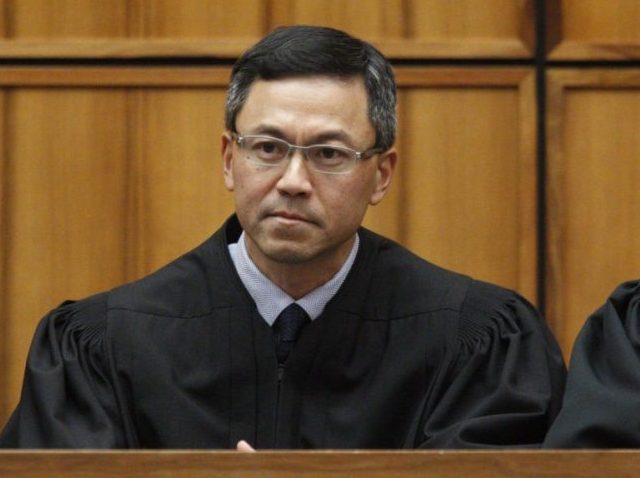Obama-appointee Judge Derrick Watson, of the U.S. District Court for the District of Hawaii, again blocked an attempt by President Donald Trump’s White House to institute an executive order banning travel from certain countries Tuesday.
Watson issued a temporary restraining order stopping enforcement of the third revision of the travel ban which still includes six Muslim-majority countries in its prohibitions. According to Watson’s decision, the Immigration and Nationality Act’s (INA) prohibition on national origin discrimination is enough to rule out letting Trump’s ban stand.
Still, Watson felt it necessary, despite not needing to rule on the First Amendment and its Establishment Clause in order to invalidate the new ban provisions, to mention the plaintiffs’ contention that, “the President ‘has never renounced or repudiated his calls for a ban on Muslim immigration.'”
Watson had already ruled against Trump’s attempts to enforce his travel ban orders on at least two occasions. First, in March, it was his issuance of a temporary restraining order, at the behest of a coalition of Hawaiian government officials and local Muslim activists represented by a Hogan Lovells legal team led by Obama Deputy Solicitor General Neal Katyal, that put the second iteration of the travel ban on hold. That time around, despite his ruling Tuesday that the national discrimination sections of the INA are enough, Watson made extensive use of the “Muslim ban” rhetoric to make his case. “Any reasonable, objective observer would conclude, as does the Court for purposes of the instant Motion for TRO [temporary restraining order], that the stated secular [national security] purpose of the Executive Order is, at the very least, ‘secondary to a religious objective’ of temporarily suspending the entry of Muslims,” he then declared.
Watson’s order made a months-long trip through the appellate system to the Supreme Court, which stayed the lion’s share of his restraining order, allowing the ban to come into effect for people without a “bone fide relationship” to the United States.
Watson ruled in July that “close familial relationships” must be considered to extend to in-laws and distant cousins, largely negating the the Supreme Court’s decision and keeping the flow of travelers from the named countries going while the case waited to be decided. While the San Francisco-based U.S. Court of Appeals for the Ninth Circuit eventually agreed with Watson, the Supreme Court first sought to clarify and then invalidated Watson’s interpretation.
This third administration attempt at an executive travel ban, promulgated as Proclamation 9645, comes after the initial 90-day bans under Executive Order 13780 expired, leading the Supreme Court to dismiss the case that was set to decide the travel ban’s ultimate fate. The new regulations add administration findings of fact to justify making restrictions on countries like Iran and Yemen permanent and introducing bans on travel to the United States from North Korea and by certain individuals and entities tied to the Venezuelan Regime.
Based on the history of the last seven months of litigation over Executive Order 13780, the Department of Justice can be expected to appeal Watson’s ruling to the Ninth Circuit and, presumably, eventually to the Supreme Court.
The case is State of Hawaii v. Trump, No. 17-cv-50 in the U.S. District Court for the District of Hawaii.

COMMENTS
Please let us know if you're having issues with commenting.